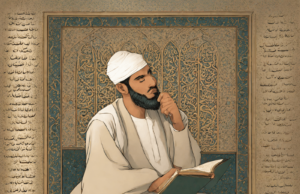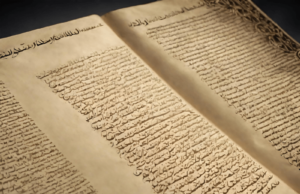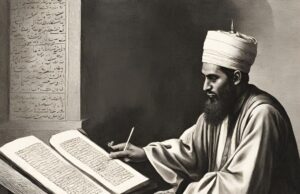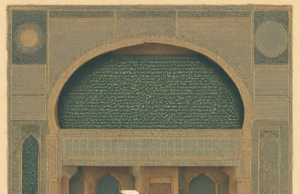The Danger of Dreams: Marājiʿ Oppose Myth-Based Preaching on Shia Pulpits
ADVISORIES OF MARĀJIʿ & MUJTAHIDĪN AGAINST PRESENTATION AND PROMOTION OF DREAM-BASED EVIDENCE IN MAJĀLIS (LECTURES)
As if the alarming amounts of anti-Qur’ānic, inauthentic, fabricated narratives...
Imam ʿAlī’s (as) own view of Leadership: Divine Appointment or Shūrā-based...
A Critique of the Current-day Popular Shīʿa Narrative on Divine Appointment of Amīr al-Mu’minīn Imam ʿAlī bin Abī Ṭālib (as)
The current-day, popular narrative on...
Waṣiyyah of Imām ʿAlī (as) on his deathbed.
The waṣiyyah of Imam ʿAlī (as) is a profound testament to his commitment to the core teachings of Islām, emphasizing the importance of tawḥīd, the prophethood of Muḥammad ﷺ, and the ethical and moral principles outlined in the Qur’ān. Despite being transmitted in both Shīʿa and Sunnī sources, the waṣiyyah remains free from sectarian additions, focusing instead on universal Islāmic values. It serves as a reminder of the pre-sectarian and non-sectarian Islam that Imam ʿAlī upheld, urging Muslims to unite under the banner of faith and piety.
How authentic is the Hadith of the Twelve Caliphs after the...
This paper delves into the famous ‘12 Caliph/Ruler’ Hadith cited in Sunni sources, often used to support the Twelver Imami belief regarding the Imamate lineage after Prophet Muhammad (s). Further, it critically evaluates Sunni Hadith scholarship’s view on its authenticity and explores Twelver Imami sources, arguing that the Hadith was never thought to refer to their Imams by the early Shia, primarily because of its text being tailored to prop up Umayyad legitimacy rather than that of the Ahlul Bayt (as).
How and why were the narrations from the Aimmah (as) fabricated?
This post investigates the phenomenon of fabricated narrations attributed to the Imams in Shia Islam. It delves into issues surrounding the authentication of Hadiths, and the motives behind the fabrication of these narrations, ranging from political agendas to sectarian biases. It encourages readers to engage critically with Hadith sources and to discern authentic traditions from spurious ones. It underscores the importance of scholarly rigor in preserving the integrity of Islamic teachings and upholding the authority of genuine narrations from the Imams.
Did the Prophet (s) and the Aimmah (as) have knowledge of...
Delving into the theological inquiry regarding the extent of knowledge possessed by Prophet Muhammad and the Imams in Shia Islam. Drawing upon Quranic verses, Hadiths, and scholarly interpretations, it explores the concept of 'ilm al-ghayb (knowledge of the unseen) and invites readers to ponder upon the nature of prophetic knowledge and its implications for understanding the role of the Prophet and the Imams within Islamic tradition. Part 1 initiates a broader discourse on the subject, paving the way for deeper exploration in subsequent installments.
What is Ghuluww (Exaggeration) in Religion?
Delving into the concept of Ghuluww, this article examines the thin line between religious fervor and extremism. Through historical and contemporary examples, it highlights the detrimental effects of exaggerated religious practices on communities. Advocating for moderation and tolerance, it encourages a balanced approach to faith. This insightful exploration urges readers to reflect on the importance of maintaining harmony and understanding within religious contexts.






